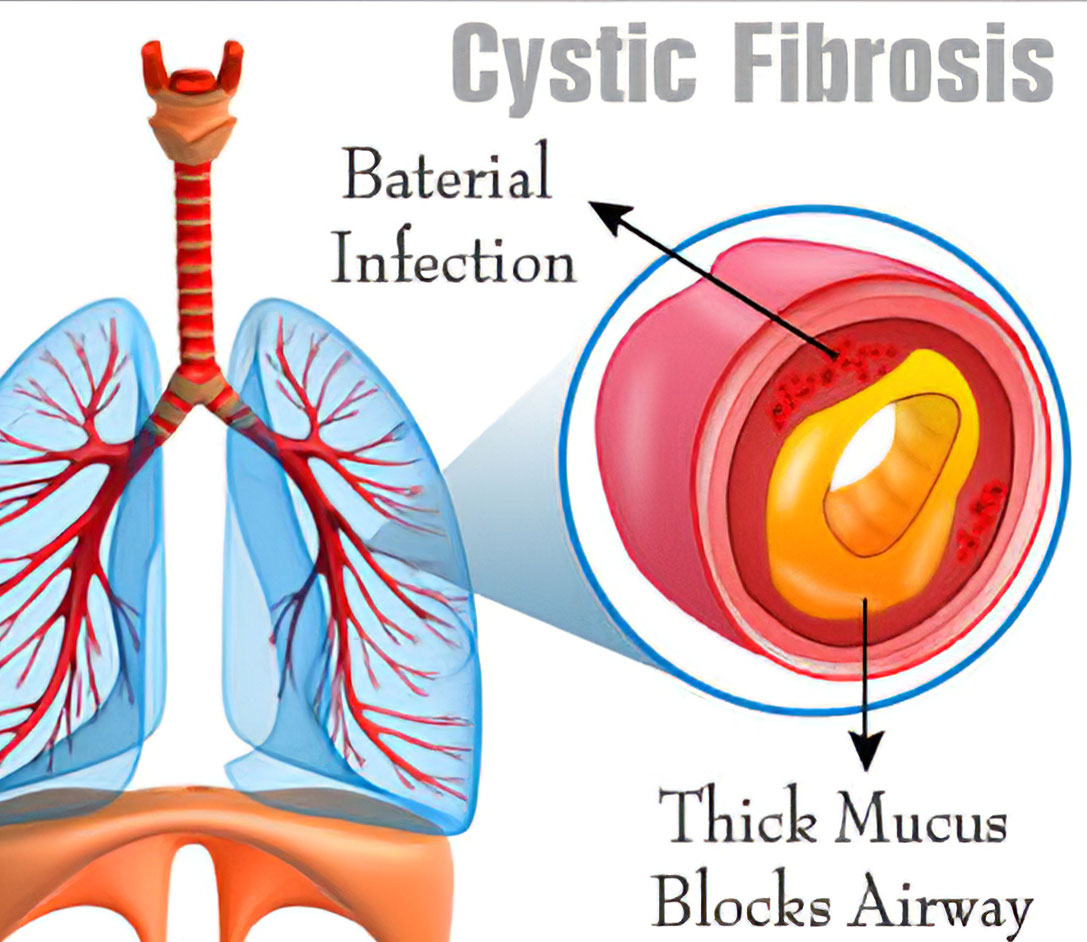
Cystic fibrosis is a genetic condition that affects the lungs and digestive system. It is caused by a defective gene that results in the production of thick, sticky mucus that can clog the airways and lead to life-threatening lung infections. Cystic fibrosis can also affect the pancreas, liver, and intestines, leading to digestive problems. The symptoms of cystic fibrosis can vary from person to person, but there are some common signs to look out for.
In this article, we will explore the various symptoms of cystic fibrosis and discuss how to recognize them.
Chronic Cough
One of the most common symptoms of cystic fibrosis is a chronic cough. This cough is often productive, meaning that it produces mucus. The mucus may be thick and sticky, making it difficult to clear from the lungs. People with cystic fibrosis may also experience wheezing and shortness of breath, especially during physical activity or when lying down.
Recurrent Lung Infections
Due to the build-up of mucus in the airways, people with cystic fibrosis are more prone to lung infections. These infections can be recurrent and may require frequent courses of antibiotics to treat. The infections can cause symptoms such as fever, chest pain, and a worsening of cough and shortness of breath.
Persistent Sinus Infections
Cystic fibrosis can also affect the sinuses, leading to persistent infections. Symptoms of sinus infections may include nasal congestion, facial pain, and post-nasal drip. People with cystic fibrosis may also have a reduced sense of smell and taste due to chronic sinus problems.
Poor Growth and Weight Gain
Children with cystic fibrosis may have difficulty gaining weight and growing at the expected rate. This is due to problems with nutrient absorption in the intestines. Babies may fail to gain weight after birth despite a good appetite, while older children may have difficulty maintaining a healthy weight.
Greasy, Bulky Stools
One of the hallmarks of cystic fibrosis is the production of greasy, bulky stools. This is a result of the body’s inability to properly digest and absorb fats and other nutrients. The stools may also be pale in color and have a foul odor.
Difficulty Breathing
As cystic fibrosis progresses, the build-up of mucus in the lungs can make it increasingly difficult to breathe. People with cystic fibrosis may experience a feeling of tightness in the chest, rapid breathing, and a decreased ability to exercise or be physically active.
Clubbing of Fingers and Toes
In advanced cases of cystic fibrosis, the lack of oxygen in the blood can cause clubbing of the fingers and toes. This condition is characterized by the abnormal rounding and widening of the tips of the fingers and toes. Clubbing is a sign of low oxygen levels and poor lung function.
Rectal Prolapse
Rectal prolapse is a condition in which the rectum protrudes through the anus. It is more common in children with cystic fibrosis, especially those who experience frequent, severe coughing spells. Rectal prolapse can cause discomfort and may require medical intervention to correct.
Infertility
Both men and women with cystic fibrosis may experience fertility problems. In men, cystic fibrosis can cause infertility due to a blockage of the sperm ducts. In women, cystic fibrosis can lead to thick, sticky mucus in the cervix, making it difficult for sperm to reach the egg.
Delayed Puberty
Puberty may be delayed in adolescents with cystic fibrosis, especially in girls. Hormonal imbalances caused by the disease can affect the onset of puberty and the development of secondary sexual characteristics. It is important for healthcare providers to monitor the growth and development of young people with cystic fibrosis.












